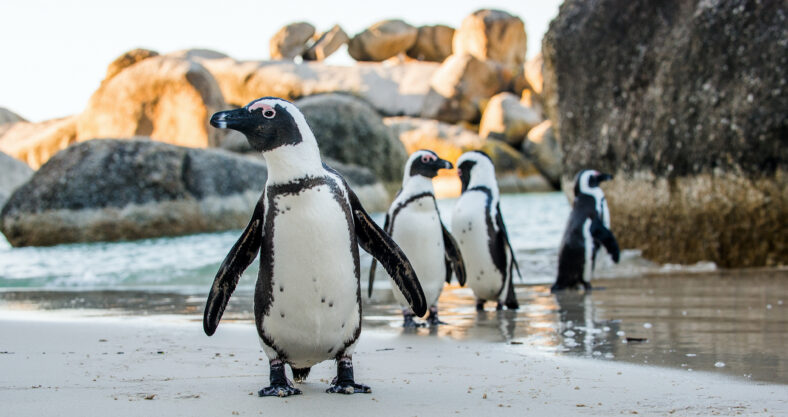An Aquarium Has Created A Retreat For Elderly Penguins To Live Out Their Golden Years In Peace

At the New England Aquarium, aging African penguins can live out the rest of their years on a new, secluded island built especially for their personal needs.
Last month, the nonprofit aquarium in Boston unveiled the penguin “retirement” retreat. So far, eight of the aquarium’s birds are settling into their new habitat.
As African penguins get older, they tend to slow down, just like humans. They might develop arthritis or other age-related conditions.
African penguins in captivity live longer than those in the wild, so caretakers decided to provide them with an island habitat that allows them to rest in peace and comfort.
“We think of this island like assisted living, where we’re helping the birds be more comfortable in a calmer environment,” said Diana Major, a penguin manager for the New England Aquarium.
“Being relaxed is key, and we think the new retirement home will ultimately lead to happier and healthier penguins.”
Typically, African penguins (Spheniscus demersus) live to be between 10 and 15 years old in the wild. However, the seabirds are critically endangered and face issues like climate change and pollution in the coastal waters of South Africa and Namibia.
Predators like gulls and ibises eat up to 40 percent of the birds’ eggs. They also prey on chicks after they hatch. Leopards, caracals, mongooses, fur seals, and sharks hunt adult birds.
Another problem these penguins endure is overfishing. The more fish that humans harvest, the less there is for the penguins to eat, which means they must swim farther out to find food.

Sign up for Chip Chick’s newsletter and get stories like this delivered to your inbox.
They do not have as much food to feed their young because they are burning more calories from all the swimming they’re doing.
By 2035, the birds could become extinct in the wild, according to scientists. But the New England Aquarium and other zoos are doing their part to help restore the wild population.
African penguins in captivity do not have to deal with the same challenges as their wild counterparts. They receive proper care from keepers and veterinarians.
At the New England Aquarium, they get to have physical therapy, foot ointment, eye drops, acupuncture, and special fish injected with extra water to boost kidney functioning. In addition, the birds are regularly screened for conditions like arthritis and cataracts.
Several of the African penguins at the aquarium are now in their 30s, and more than half of the colony has either reached or exceeded the life expectancy of wild birds.
“In the wild, they would never reach this age,” Major said. “A lot of the time, we see physical issues that we normally wouldn’t see in the wild, because in the wild, if you slow down, you get eaten by a shark.”
Caretakers decided to build a separate area for older penguins to relax, without having to compete with younger penguins for food. The geriatric birds can still see and hear the younger penguins.
The retirement island is separated from the other three islands for penguins by a mesh gate in the water. The caretakers hope to add ramps and more flat areas in the future for improved accessibility.
More About:Animals